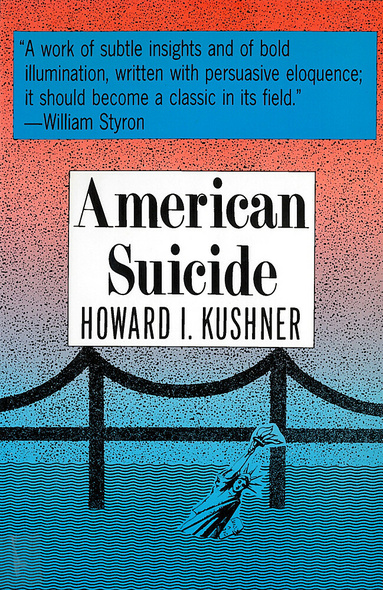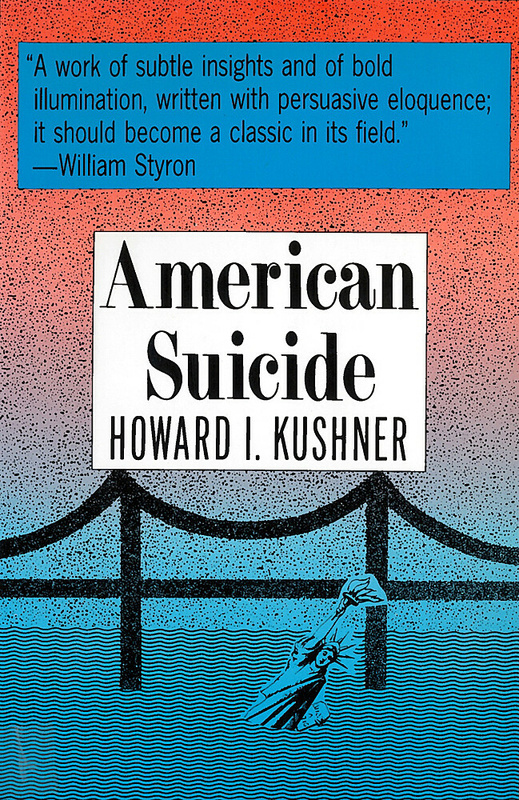The predecessors of Durkheim, Freud, and Kraepelin, distrusting explanations based on specific causation, had assumed that suicide like other diseases was a consequence of the interaction of emotional, constitutional, and habitual imbalances. The way a person lived, ate, and felt was viewed as inseparable from the course and outcome of any disorder. For the nineteenth-century physician, the moral issues that suicide raised could not be isolated from its constitutional components. Thus, those who exhibited suicidal tendencies were subjected to an amalgamation of pharmacological, social, and psychological interventions, which practioners labeled the "moral treatment."
By the 1890s, however, the consensus about the causes of suicide became unglued as a bacteriological medicine and the rise of the social sciences jointly served to call into question eclectic diagnoses. The renewed doctrine of specific causation of disease quickly spilled over into a constellation of explanataions for social behavior. The rise of specialization, which followed the bacteriological revolution of the 1880s, made the moral treatment appear scientifically suspect.
The goal of American Suicide is to demonstrate how the apparent contradictions among sociological, psychoanalytic, and neurobiological explanations of the etiology of suicide may be resolved. Only througha reintegration of culture, psychology, and biology can we begin to construct a satisfactory answer to the questions first raised by Durkheim, Freud, and Kraepelin.
By the 1890s, however, the consensus about the causes of suicide became unglued as a bacteriological medicine and the rise of the social sciences jointly served to call into question eclectic diagnoses. The renewed doctrine of specific causation of disease quickly spilled over into a constellation of explanataions for social behavior. The rise of specialization, which followed the bacteriological revolution of the 1880s, made the moral treatment appear scientifically suspect.
The goal of American Suicide is to demonstrate how the apparent contradictions among sociological, psychoanalytic, and neurobiological explanations of the etiology of suicide may be resolved. Only througha reintegration of culture, psychology, and biology can we begin to construct a satisfactory answer to the questions first raised by Durkheim, Freud, and Kraepelin.
A work of subtle insights and of bold illumination, written with persuasive eloquence; it should become a classic in its field.
Will rush to the top of the list of important books on psychohistory... balanced and provocative... it's a blockbuster.
An illuminating overview of the prevailing understanding of suicide over the past 300 years, tracing current theories back, in some cases, to their roots in Puritan New England. [Kushner] shows how the conflicting views of psychology, sociology, and biochemistry emerged and hardened into dogmatic theories within each discipline that impeded cross-pollination... Fascinating stuff.
Outstanding... the only work I know that is adequate to the complexity and the multidimensionality of suicide, and which genuinely combines, indeed synthesizes, a wide range of disciplinary perspectives into a coherent and satisfying view of the issues... a tour de force.
Howard I. Kushner is Professor of History and the Director of the Graduate Interdisciplinary Program in Liberal Arts at San Diego State University. He is the author of Conflict on the Northwestern Coast and (with Anne H. Sherrill) John Milton Hay: The Union of Poetry and Politics.
pt. 1. From Satan to serotonin
From crime to disease, 1630-1843
Rise and decline of moral treatment, 1844-1917
Specialization and its casualties, 1917-1988
pt. 2. Toward a psychocultural biology of suicide
Official statistics and cultural meaning
Two strategies
The psychocultural meaning of suicide
Toward a psychocultural biology
From crime to disease, 1630-1843
Rise and decline of moral treatment, 1844-1917
Specialization and its casualties, 1917-1988
pt. 2. Toward a psychocultural biology of suicide
Official statistics and cultural meaning
Two strategies
The psychocultural meaning of suicide
Toward a psychocultural biology





